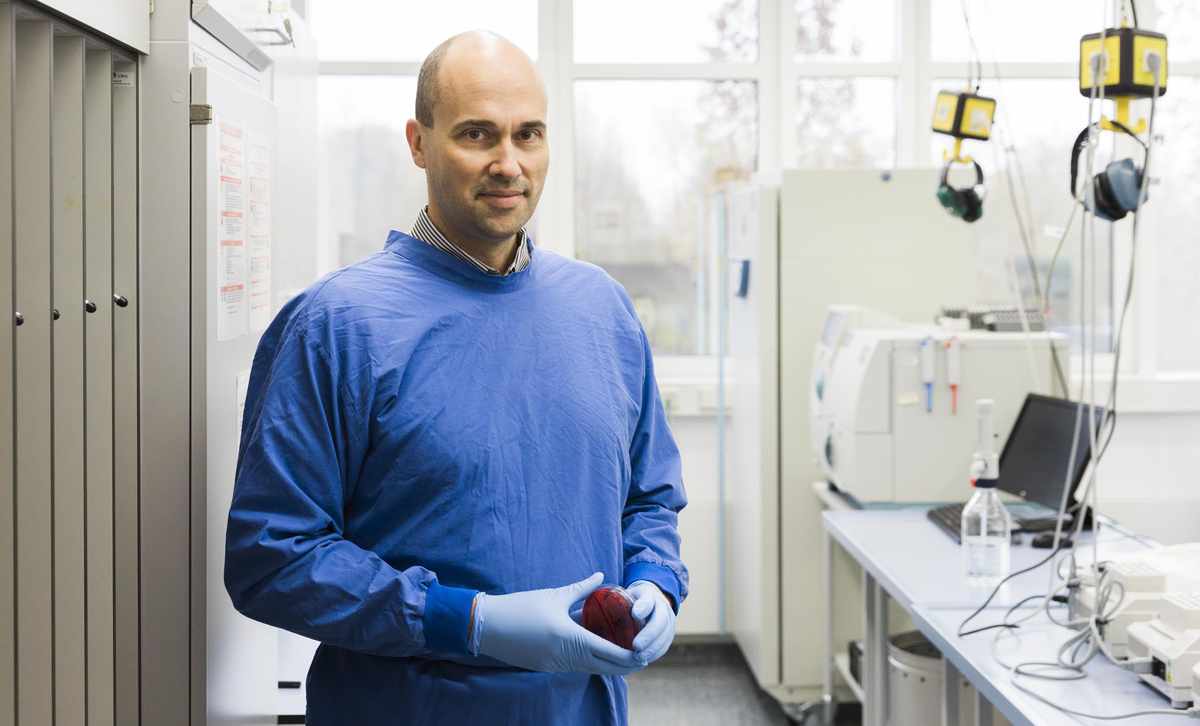The rapid test can be used to quickly and inexpensively determine whether a person has already survived the disease and produced antibodies against the Sars-CoV-2 virus. The test is as simple as a pregnancy test. A drop of blood from the fingertip is sufficient and after about ten minutes, lines on the test strip indicate whether one of two types of antibodies has been found. The IgM antibodies are found in the blood just a few days after infection, while the IgG antibodies are formed later in the course of the infection. They usually remain detectable for several months and indicate an existing immunity.
"If we knew how many people are already immune, we would know where we stand in this crisis.“
"Antibody tests provide important information for understanding and containing the corona pandemic," explains biochemist Prof. Ralf Ehricht from the Leibniz Institute of Photonic Technology (Leibniz IPHT) in Jena, whose team is working on the development, evaluation, and quality control of the rapid test. It is not known how many people have already been infected with the coronavirus without realising it. "We do not know how many are already immune. Therefore, strictly speaking, we do not know where we stand in this crisis," emphasizes Ehricht, who is researching new multiparameter methods for the diagnosis and epidemiology of infectious diseases at Leibniz IPHT and the Friedrich Schiller University Jena. "The virus is highly infectious, there is currently no available vaccination against it and few therapeutic approaches. This means that the spread will only come to a halt when, according to current knowledge, about 70 percent of the population has been infected.
Relief for nursing staff and medical personnel
Unlike PCR (polymerase chain reaction) tests, which directly detect the RNA — the genetic material — of the virus from a throat swab and thus the acute infection, antibody tests aim to determine the immune response of the host. Used extensively, they can reveal the dark figure of infections that have already occurred. "We need to introduce antibody tests on a large scale in order to learn who is actually immune," confirms Prof. Michael Bauer, Director of the Department of Anaesthesiology and Intensive Care Medicine at the University Hospital of Jena and member of the board of the InfectoGnostics research campus, where the rapid test was developed. "In order to use herd immunity, we have to measure it. To do this, we need the rapid tests." Serological tests for antibodies would make it possible to estimate the percentage of infected people who have developed no or only mild symptoms more precisely — and thus help to find out where we stand in the infection wave and when the so-called herd immunity could develop. Herd immunity could theoretically also reach smaller communities, explains Ralf Ehricht, such as hospitals or retirement homes.
Antibody tests would be a great advantage for nursing staff and doctors because they would be able to better assess their risk of infection with the coronavirus. Those who have successfully survived Sars-CoV-2 and trained antibodies would be able to care for patients without being infected or at risk themselves. The knowledge about immunity would also be very helpful for members of other professions with a lot of contact with people — for example for cashiers, bus drivers or police officers. Researchers do not yet know whether the antibodies indicate permanent immunity or whether this immunity is only temporary.
Rapid solution thanks to close cooperation between research and industry
The Weimar-based diagnostics company Senova has already produced tens of thousands of the antibody rapid tests for delivery to its North Rhine-Westphalian distribution partner. Within three months, the Thuringian team of researchers and developers, in cooperation with a Chinese company and the medical device distributor Servoprax from Wesel, has now completed the tests under high pressure and confirmed their effectiveness. "To achieve an available product so quickly is only possible when partners from business, science, and medicine work hand in hand, as we do in Jena," emphasizes Ralf Ehricht. At the InfectoGnostics Research Campus Jena, technologists from industry, clinical users, and academic research institutions develop market-ready solutions for the diagnosis of infectious diseases. This public-private partnership is funded by the Federal Ministry of Education and Research (BMBF).
